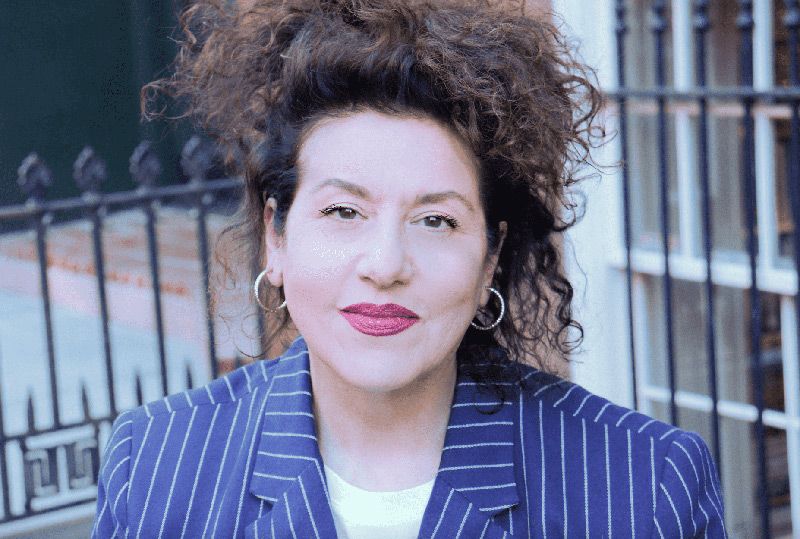Twenty-one novels, millions of copies sold, and a career spanning television, film, and theater—Adriana Trigiani is one of the most beloved voices in American fiction. She rose to international fame with The Shoemaker’s Wife, a bestselling novel that was also adapted for the screen. Her new book, The View from Lake Como, out July 8 from Dutton, once again explores themes of family, identity, and womanhood—this time set in a very specific place: Lake Como, New Jersey.
“It’s real,” she says with a smile in an interview with La Voce di New York. “That’s where the novel is set. But the story points in another direction entirely—toward Italy. The Alps, Carrara, the marble quarries. I wanted to explore the unbreakable link between Italians and Italian Americans, even when it feels forgotten.”
At the heart of the novel is Jess Capodemonte, a tired but fiercely independent woman who inherits her uncle’s marble business and is forced—almost against her will—to confront the weight of her heritage. What unfolds is a transatlantic reckoning, a story told in two languages: blood and choice.
“It’s not just about geography”, Trigiani says. “It’s about reconciling with one’s Italian identity. Jess finally begins to define herself. She’s no longer living in the reflection of someone else’s expectations. She’s a woman who says: You won’t define me—I’ll define myself”.

Photo credit: adrianatrigiani.com
Family, as in every Italian-American saga, is the axis around which everything spins. But in Trigiani’s world, family is not fixed—it’s alive, reshaped with every generation. The Capodemonte, Burana, and Balancia clans are connected by a single thread that stretches from the Jersey coast to Italy. “All my books are about family”, she says. “But this time I wanted to show how roles—especially for women—are assigned to us. And how we can rewrite them”.
Trigiani’s feminism is intimate, rooted in the domestic sphere yet undeniably political. “Italian women are incredibly strong, but they face the father, the brother, the husband. In our families, we’re taught to trust—but that doesn’t always protect us. My grandmothers were pioneers: one worked in a Pennsylvania factory, the other ran a tailoring shop in Minnesota. They fought, and I’m the beneficiary of those sacrifices.”
It was to them—grandmothers, aunts, her mother—that Trigiani dedicated her most heartfelt words at New York’s celebration of the Italian Festa della Repubblica on June 2. Standing before the Italian community and Consul General Fabrizio Di Michele, she delivered a speech in Italian. “Fabrizio told me, ‘Don’t do it!’” she laughs. “But I did it anyway. I love the language—I absorb it like a sponge. If I lived in Italy for a month, I’d be fluent.”
That spirit of resistance pulses through every page of the novel. Humor, Trigiani says, is not a distraction but a tool for survival. “It’s instinctive,” she explains. “I learned it in years of clubs, scripts, shows. It comes from rebelling against the roles we’re handed. It works because it always starts with character.”
The connection between Italians and Italian Americans, she adds, is more nuanced than most realize. “In Italy, some still look at us with suspicion. But the bond is real. My family there has always supported me. That’s the foundation of my storytelling”. Italian stories, she believes, resonate globally because they blend parable and routine, art and food, fantasy and family. “Everyone feels welcomed. When you tell Italy well, the world sees itself in it.”
And as for America, Trigiani’s optimism holds firm. “Protest is a sign of democratic health. Voices will rise—and we’ll find common ground. We are a good people.”











